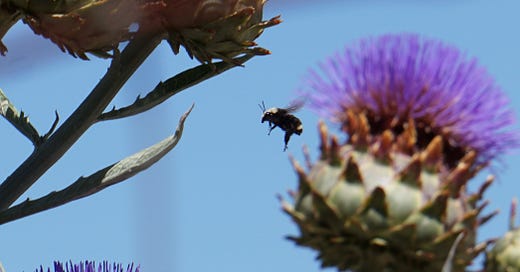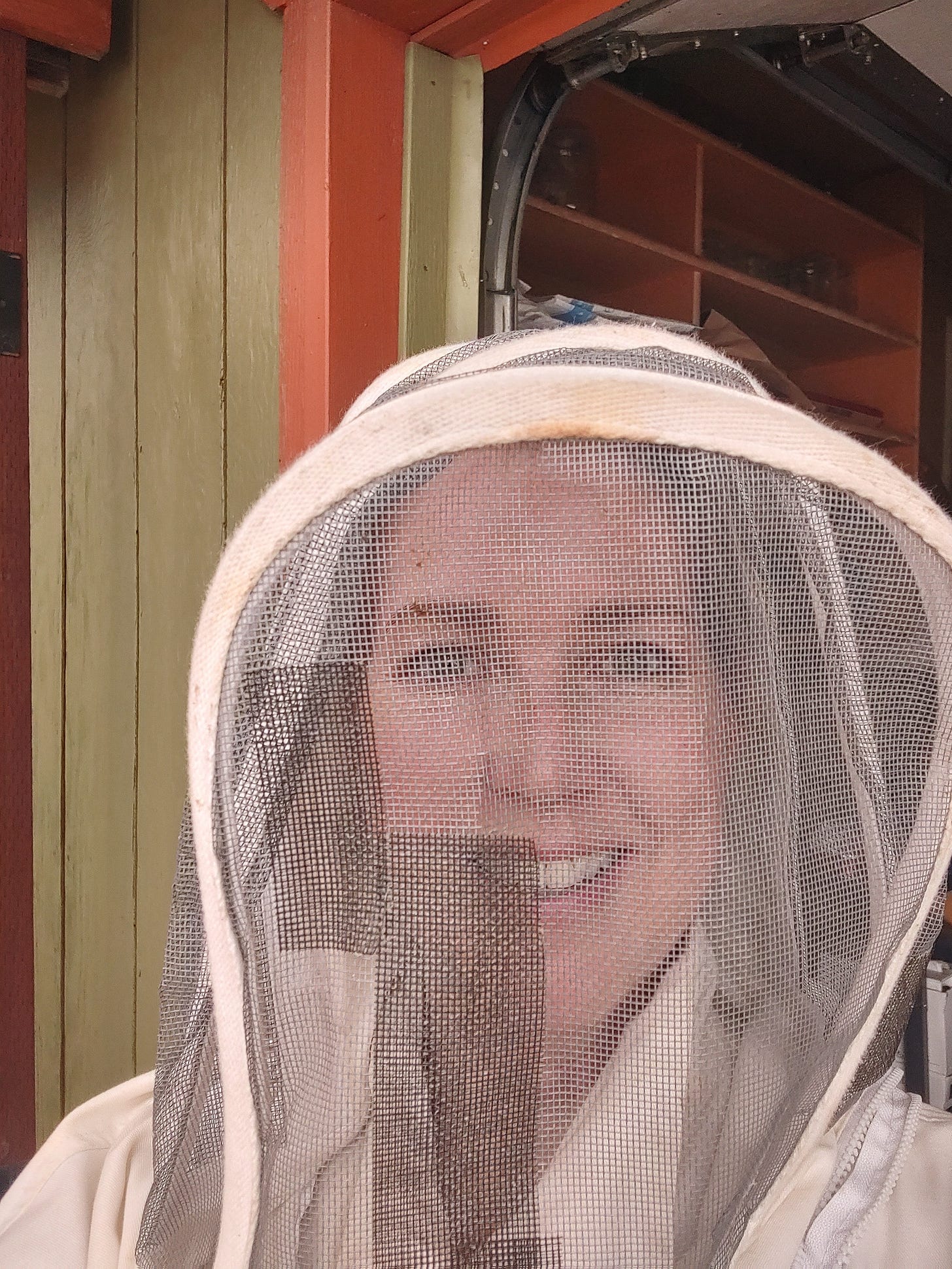Today is World Bee Day! To highlight the importance of these key pollinators the United Nations has designated May 20th, annual World Bee Day.
A lot of people are afraid of bees, some with good reason if they have serious allergic reactions to bee stings. However, even those who fear bees benefit from them every single day. Bees are one of the planet’s most important and prolific pollinators. Pollination is absolutely essential for the survival of Earth’s ecosystems. Nearly 90% of the world’s wild flowering plant species depend, entirely, or at least in part, on insect or animal pollination. More than 75% of the world’s food crops and 35% of global agricultural lands require pollination.
Not only do bees and other pollinators contribute directly to food security, they’re also key to conserving biodiversity because they feed on, and in the process pollinate, a wide range of plant species even in the most remote areas.
Sadly, and dangerously, like many other species, bees are being severely harmed by human activities. Intensive farming practices, deforestation, widespread mono-culture crops containing only one plant species, and pesticide use both on big farms, and peoples’ backyards all pose problems for bee populations. Paving over paradise has led to massive destruction in habitat in urban settings. Finally, global warming appears to be adding to the pressures by reducing habitat, especially for some species of native bees. Close to 35 percent of invertebrate pollinators, particularly bees and butterflies, and about 17 percent of vertebrate pollinators, such as bats, face extinction globally.
Fortunately, this is one environmental challenge that is relatively simple, for individuals and institutions, to take useful action.
Each of us can support bees by:
avoiding pesticides, fungicides or herbicides in our homes and gardens;
planting a diverse set of native plants that flower at different times of the year;
buying raw honey from local farmers;
buying products from sustainable agricultural practices;
supporting local and state bans on neonicotinoid pesticides that are particularly destructive to pollinator species;
making a bee water fountain by leaving a shallow water bowl outside;
helping sustain forest ecosystems;
raising awareness around us by sharing this information within our communities and networks; the decline of bees affects us all.
Farmers can help by:
reducing the usage of pesticides;
diversifying crops as much as possible, and/or planting attractive crops around the field;
creating hedgerows that have a diversity of plants.
Governments could help by increasing regulations on pesticides, removing mono-crop subsidies, creating incentives for sustainable agricultural practices.
If you’re really serious you could become a beekeeper! I first joined the buzz around bee-keeping in 2012 when I was serving as First Lady of Oregon and living part-time in the Governor’s mansion known as Mahonia Hall. The Willamette Valley Bee Keepers Association approached me with the idea of setting up a hive there and they took care of the basic hive maintenance. I, and my First Lady assistant, created a “brand” of honey called Mahonia Gold, Political Pollen. People loved it and it quickly became a hot little gift item.
Shortly after that I set up a hive at my personal home in Bend, Oregon. I had a small plexiglass window installed into my hive so that I could peek into the hive’s inner workings. I’ve been hooked ever since and love watching them go in and out of the hive, and visit all the blossoms and flowers in my yard and well beyond. There is a lot of information and support for people wanting to take up bee-keeping but do note, proper hive maintenance does take a bit of time, particularly in the spring.
I think it’s worth considering that if humans disappeared from the planet the planet would be just fine. But if bees disappeared there would be significant collapse in the food web due to the absence of pollination. That ought to challenge our widespread tendency toward human arrogance.
Here’s some additional fun and useful info about why we should be grateful for and to bees and how to better protect them.
A final word of caution, becoming a bee-keeper can lead to a strong desire to drop puns left and right. With that, have a Bee-utiful day!
Here is a short vid of my bee girls going about their business at my hive.
Cylvia
Prosperity and Spiritual Economics class (online)
Beginning June 17th, I’ll be offering a six-week class on Prosperity and Spiritual Economics.
Do you ever stress out about money? Does prosperity include non-material aspects of life? Would you like to release the things that are limiting the flow of abundance into your life?
In this class students will explore the broader meaning of prosperity to discover their own beliefs about money, abundance and lack. Participants will create practices for healing limitations they hold about prosperity, and discover ways to address their own unexamined, unconscious assumptions about abundance, giving and generosity. This course examines the prosperity teachings of Charles Fillmore and Eric Butterworth, as well as more contemporary teachings.
We’ll also explore some of the challenges in the status quo consumption-based economic system that is our current societal operating system as well as alternatives that could bring about a healthier world.
This class is a required Spiritual Education and Enrichment class for people going into the Unity Worldwide Ministries ministerial education track but is open to everyone.
Register Here.






